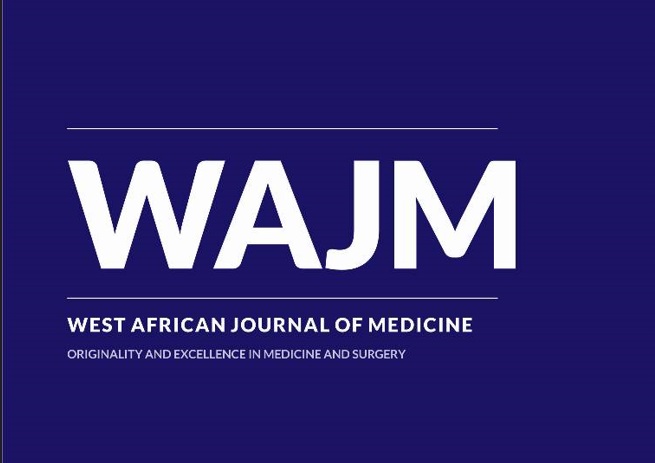CLINICAL ARTICLE Comparison of Short Course Versus Long Course Antibiotic Prophylaxis for Caesarean Section: A Randomised Controlled Trial
West Afr J Med. 2021 April; 38(4): 398-404 PMID: 33904295
Keywords:
Antibiotics, Ceasarean Section, Infection, ProphylaxisAbstract
Background: The need for restrictive use of antibiotics has become a contemporary issue, hence the drive for reduction in the duration of perioperative antibiotic use without compromising care.
Objective: The aim of this study was to compare the efficacy of short course versus long course antibiotic prophylaxis for caesarean section.
Methodology: This was a randomised controlled study in which I66 patients admitted for elective or emergency caesarean section at National Hospital Abuja were randomly allocated into two parallel treatment groups in 1:1 allocation ratio. The study group received intravenous dose of 1g of ceftriaxone with 500mg of metronidazole stat post umbilical cord clamping. While the control group received post-operative doses of intravenous ceftriaxone 1g 12 hourly with 500mg of metronidazole eight hourly for 24 hours, then oral cefuroxime 500mg twice daily and metronidazole 400mg thrice daily for five days. Outcome measures included febrile morbidity, wound infection and clinical endometritis. Data was analysed with SPSS version 23.
Results: The socio-demographic and clinical characteristics were comparable in both groups. There were no statistical differences in the incidence of febrile morbidity (0% vs. 1.3%, P=1.000) and wound infection (12.2% vs. 12.8%, P=0.902, RR=0.902, 95% CI 0.409-2.203) in the study and control groups. There was no case of clinical endometritis in both groups. The difference in the cost of antibiotics was however statistically significant (t=26.847, P=0.001).
Conclusion: Short course antibiotics has comparable efficacy to long course antibiotics in the prevention of post caesarean section infectious morbidity.


